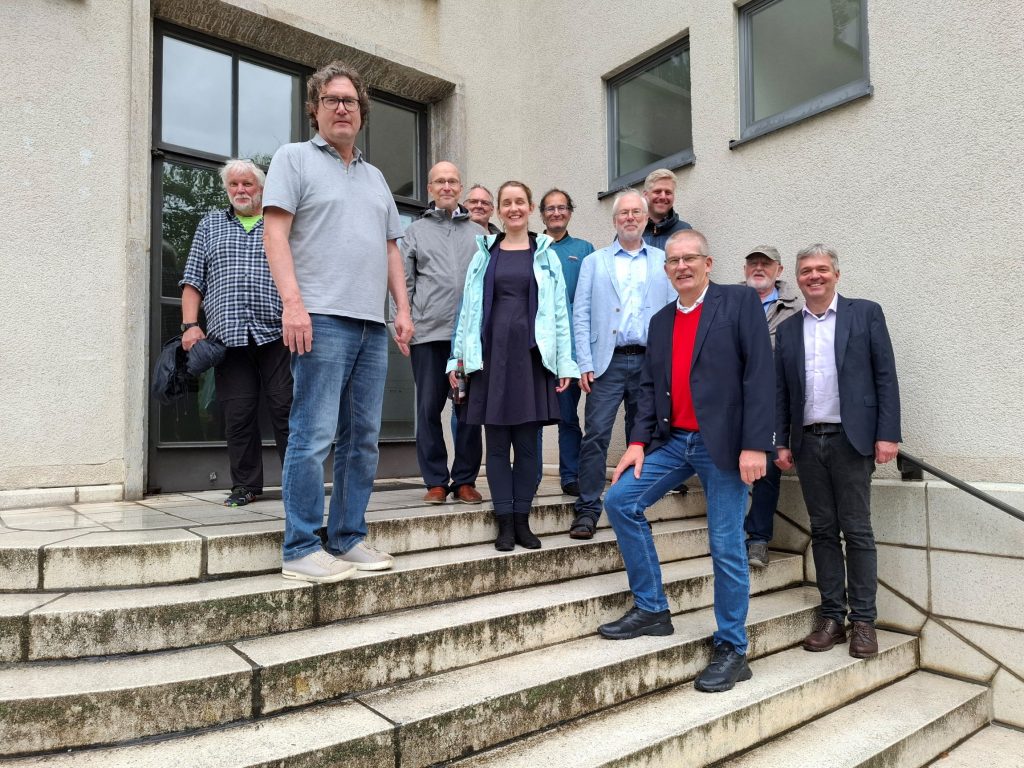On August 4, 2025, the kick-off meeting for the DIEGOSat project took place in Berlin.
The project team, consisting of partners Ruhr University Bochum (RUB), Astro- und Feinwerktechnik Adlershof GmbH (AFW), CRN Management GmbH (CRN), von Hoerner & Sulger GmbH (vh&S), and ZEBRIS GEO-IT GmbH (ZEBRIS), met to plan the work for the DIEGOSat feasibility study commissioned by the Ministry of Economic Affairs, Industry, Climate Protection, and Energy of the State of North Rhine-Westphalia.

The experts agreed on the upcoming tasks and goals for the next 9 months:
- Mission definition and objectives: Clear definition of the scientific objectives of the mission to answer the question: What is to be achieved with the satellite?
- Technical feasibility: Evaluation of the required satellite technology, such as sensors, communication systems, propulsion, and power supply. This also includes the analysis of risks and potential technical hurdles.
- Orbital analysis: Determination of the optimal orbit for the mission, taking into account factors such as coverage, data acquisition rate, and satellite lifetime.
- Ground segment analysis: Investigation of the ground stations required for communication with the satellite, data processing, and mission control.
- Data evaluation and utilization: Planning how the data collected by the satellite can be processed, analyzed, and used for the defined mission objectives. This may include the development of algorithms and software.
- Economic analysis: Evaluation of the costs for development, construction, launch, and operation of the satellite. Potential economic potential is also considered.
- Scheduling: Creation of a realistic schedule for all phases of the mission, from conception to the end of operations.
- Risk assessment: Identification and evaluation of technical, financial, political, and operational risks that could affect the success of the mission.
- Legal and regulatory aspects: Review of approval procedures, frequency allocations, and international agreements relevant to the operation of a satellite.
- Stakeholder analysis: Identification of all relevant stakeholders (e.g., clients, technology providers, user groups) and their requirements.
This comprehensive investigation is crucial in order to make an informed decision about proceeding with the next phases of the satellite mission.